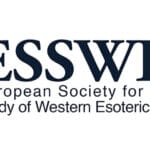

This research project concerns the intellectual history and symbolism of ‘Pansophia’, an occult intellectual current primarily in Early Modern Western esoteric thought. The project begins in the late medieval period with the Christian mystic and polymath Ramon Llull (1232-1315/16). According to recently established scholarly consensus, Llull has been positioned at the origins of the Pansophic current of thought in his development of a part mystically contemplative, part mathematical system referred to as the ars combinatoria (combinatory art). The trigger behind Llull’s pansophic system was two religio-mystical experiences he had in which he perceived the attributes of the godhead in the phenomenal world around him. A hallmark of the pansophic approach initially detected with Llull is its orientation outwards to nature as opposed to the more gnostically flavored inner oriented approach of theosophy. In establishing Llull as the proverbial cornerstone to this understudied esoteric current in Western culture, the later reception and development of Pansophia rests on Llullian foundations.
The immediate most important next nodal point in this research systematically explores how the Llullian stream is received, develops, and reaches an apogee in the de facto Pansophic tradition in the Early Modern Period, Rosicrucianism – an esoteric, anti-papal, Hermetic-Christian movement which emerges in Germany in the early 17th century. The Rosicrucian saga of the history of Pansophy manifests in Kassel where the initial Rosicrucian documents are anonymously published at the court of Moritz ‘the learned’ of Hessen-Kassel (1572-1632) before moving to the seat of the Holy Roman Emperor Rudolf II (1576-1612) at Prague shortly thereafter.
The final and most fruitful blossoming of Pansophia, building on Lullian and Rosicrucian fundaments manifests in the Pansophic vision of the Moravian-born theologian, philosopher, and ‘teacher of nations’ John Amos Comenius (1592-1670). Comeniologists have periodized the man’s life and work into stages – the most important of which for this research concerns works produced during the ‘pre-pansophic’ and ‘pansophic’ stages. Variants of the term ‘Pansophia’ adorn the titles of many works produced by Comenius during these periods. Additionally and importantly, he was (A) a student of the encyclopedist and translator of Llull’s works Johann Heinrich Alsted (1588-1638) at Herborn university and (B) a correspondent with the author of the Rosicrucian manifestos Johann Valentin Andreae (1586-1654).
The logical progression of this research concerns a reception history of these Pansophic streams into the modern period by exploring the ‘Pansophic Society’ of Heinrich Tränker, as well as the Rosicrucian sources and influences present in the works of the psychoanalysts Herbert Silberer and Carl Gustav Jung.
As part of the University of Amsterdam, our research falls under the umbrella of the Amsterdam School of Historical Studies (ASH) at the Faculty of Humanities.
As part of the Religious Studies unit the HHP centre participates in the interdisciplinary research group on Religious Dynamics and Cultural Diversity.
The presence in Amsterdam of the famous Bibliotheca Philosophica Hermetica, situated in the Embassy of the Free Mind, and of the rich material of the Amsterdam University Library’s Special Collections (Bijzondere Collecties) provides important research facilities for our staff. The HHP’s strong emphasis on historical research of primary sources is greatly advanced by these libraries and collections.
The HHP centre is an intrinsic part of a larger international network that promotes, creates and distributes peer-reviewed academic research in the interdisciplinary field of Western esotericism.
The European Society for the Study of Western Esotericism (ESSWE) was founded in Amsterdam in 2005, the staff at the HHP centre continues to be deeply involved with the further development of this international learned society.
Our staff has also been instrumental in setting up and running the leading peer-reviewed journal devoted to Western esotericism, Aries, and the Aries Book Series – both published by Brill under the auspices of the ESSWE.
An overview of dissertations completed at the HHP centre.
Would you to like to get in contact with our researchers or get more information about research at the HHP Centre?
The Center for History of Hermetic Philosophy and Related Currents (HHP) is part of the Faculty of Humanities at the University of Amsterdam. We are committed to the highest standards of critical academic scholarship, independent of any worldview.
Visiting adress:
Bushuis / Oost-Indisch Huis
Kloveniersburgwal 48
1012 CX Amsterdam
The Netherlands
Postal adress:
Postbus 1622
1000BP Amsterdam
Email: hermetica-fgw@uva.nl
The Center for History of Hermetic Philosophy and Related Currents (HHP) is part of the Faculty of Humanities at the University of Amsterdam. We are committed to the highest standards of critical academic scholarship, independent of any worldview.
Visiting adress:
Bushuis / Oost-Indisch Huis
Kloveniersburgwal 48
1012 CX Amsterdam
The Netherlands
Postal adress:
Postbus 1622
1000BP Amsterdam
Email: hermetica-fgw@uva.nl
The Centre for History of Hermetic Philosophy and Related Currents (HHP) is part of the Faculty of Humanities at the University of Amsterdam. We are committed to the highest standards of critical academic scholarship, independent of any worldview.
Visiting adress:
Bushuis / Oost-Indisch Huis
Kloveniersburgwal 48
1012 CX Amsterdam
The Netherlands
Postal adress:
Postbus 1622
1000BP Amsterdam
Email: hermetica-fgw@uva.nl
© HHP 2022 – by Digital Marketing Agency MIAX